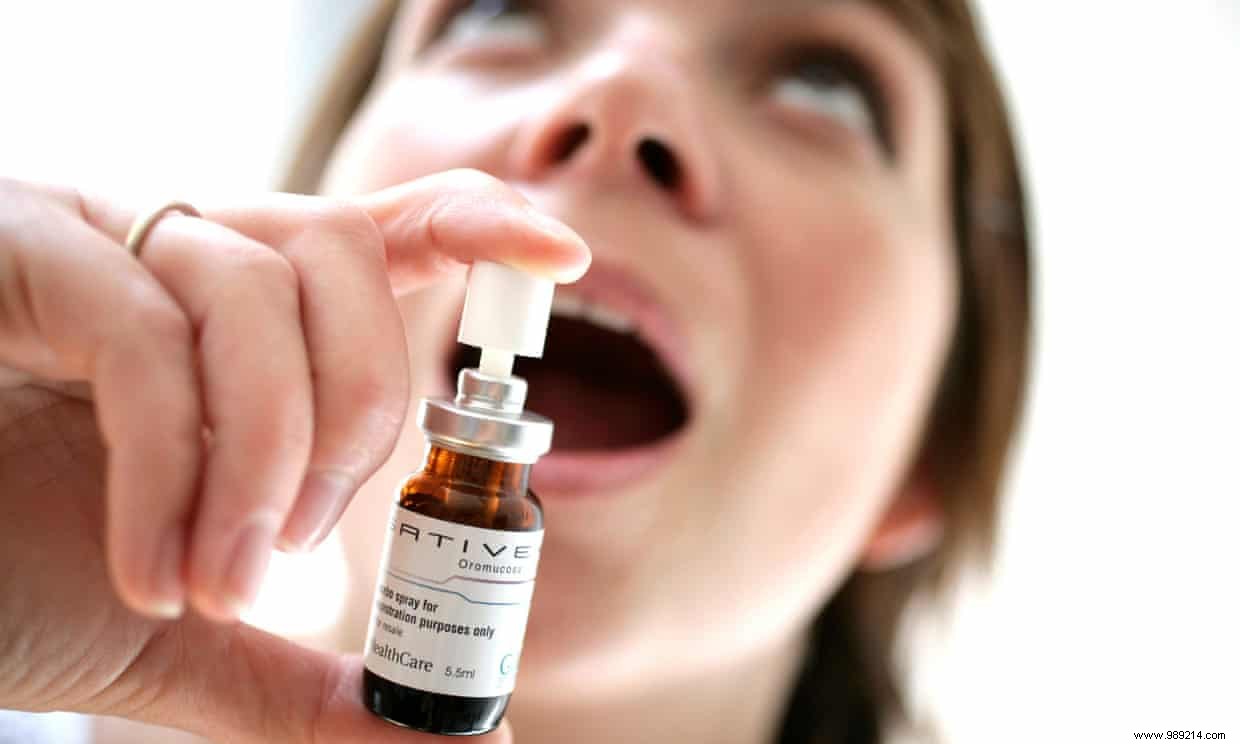Several cancer associations, in collaboration with the National Health Service (the British public health system) are preparing to test the effectiveness of a spray Cannabis mouthwash to treat severe brain tumours.
Glioblastoma is a malignant brain tumor that develops from glial cells that are normally used to ensure the proper functioning of neurons and nerve conduction. Glial cells then reproduce haphazardly and spread to many parts of the brain. Glioblastoma is the most aggressive tumor in the glioma family. On average, patients live less than eighteen months after their initial diagnosis.
To treat this aggressive cancer, doctors favor the combination of radiotherapy with chemotherapy, whether or not preceded by surgery. In an upcoming clinical trial, the first of its kind, researchers will test another approach:a cannabis-based mouth spray.
Several studies carried out on cells in culture and on mouse models have in fact already suggested that certain cannabinoid compounds can prevent the development of cancerous tumors when administered in combination with temozolomide (a chemotherapy drug). Now it's time for clinical trials.
Earlier this year, Susan Short and her team at the University of Leeds published the results of a phase I trial involving 27 patients. Its purpose was to test the safety of a cannabis-based mouth spray known as Sativex . This spray, which contains both THC and CBD in equal concentrations, has already been approved for use as a treatment for muscle spasms in patients with multiple sclerosis.
Although this small study was not designed to evaluate the effectiveness of this drug-based approach, the authors nevertheless pointed out that 83% of participants who received Sativex were still alive after one year , compared to 44% of the group that received a placebo.

Researchers are now preparing a phase II trial. The latter will involve 232 patients with glioblastoma of fifteen hospitals in the UK. Of this sample, two-thirds will receive Sativex in addition to temozolomide, while the remaining third will receive a placebo. Recruitment of participants is expected to begin in early 2022. The Brain Tumor Charity, which is funding the study, is currently seeking funds to ensure the trial runs smoothly. 450,000 pounds sterling, or about 526,000 euros, are needed.
Once this trial begins, participants will be required to self-administer up to twelve sprays of Sativex per day for up to three years.